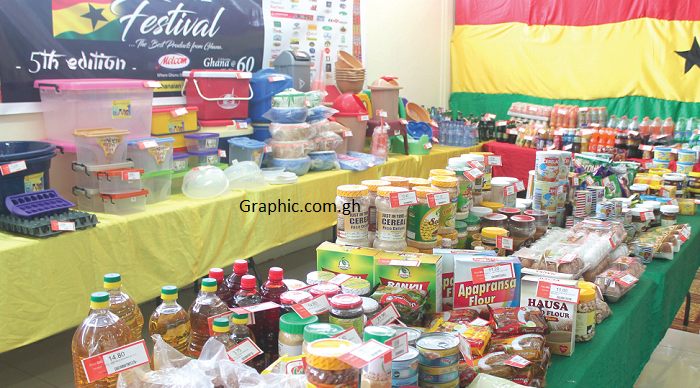
We can’t continue to import food
Last week, the Minister of Finance, Mr Ken Ofori-Atta, revealed that food imports cost the nation an average of US$2.4 billion every year.
Advertisement
At US$2.4 billion, the cost of food imports is about a quarter of the value of non-oil imports, which closed 2017 at US$10.66 billion.
While bemoaning the impact of the huge food import bill on the economy, the minister told members of the Ghana Trades Union Congress (TUC) in Accra that the development was fuelled by the corresponding strong appetite for imported consumables.
For a country such as Ghana with vast fertile lands, the GRAPHIC BUSINESS finds it incomprehensible that we continue to import a lot of food items which can be produced locally.
While this puts needless pressure on the country’s currency, causing it to lose value, it also denies the country the opportunity to generate jobs along the agriculture value chain.
We also find it worrying that instead of the government investing in agriculture and encouraging farmers to produce more food to feed the nation, it is relying on donor funds to support a critical sector such as agriculture.
Available statistics indicate that about 70 per cent of agricultural programmes are currently financed by donors, where the funding is mostly channelled into administrative expenses rather than capital expenditure.
This trend is worrying and the government must reverse it by making the right investments in the sector.
There must be no justification for Ghanaians to import food items which can be produced locally at a much lesser cost to the benefit of the economy.
Countries such as Israel have managed to become agricultural giants even though they are not blessed with fertile lands.
This shows our half-hearted approach to tackling the issues of agriculture, especially with the advantage we have in our natural endowments.
The government should, as a matter of urgency, put in place measures that would support food production in the country.
One of the critical issues hindering agriculture in the country is access to credit. We, therefore, urge the government to facilitate credit to as many farmers as possible to boost their activities.
The government must come out with a programme that will allow farmers to access lower sources of credit in the country to enable them to acquire their own inputs on time.
Another critical area which needs to be looked at is research and development, and we urge the government to consider resourcing research and development institutions to enable them to come out with innovations that will help farmers to maximise their yields.
Over the years, farmers have been given fertiliser and seed subsidies but the yields are still low. Thus, there is the need to resource these institutions to come up with new technologies that will improve the fortunes of farmers.
The government must also invest more in mechanisation and also step up its efforts
Extension services are still a major concern to the sector and the government should continue to invest in this area.
For the country to be food-sufficient, the government also has to look at deepening existing initiatives such as the planting for food and jobs (
We must reverse this trend and it behoves the government to be decisive now.



